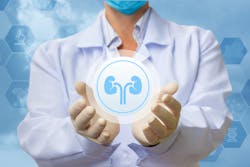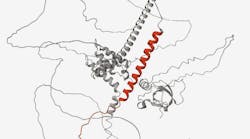In a new study looking at the long-term effects of hospitalized patients who have acute kidney injury (AKI), a sudden but temporary loss of kidney function, Johns Hopkins Medicine researchers found that higher levels of certain biomarkers in urine and blood can predict a patient’s risk of developing chronic kidney disease (CKD).
The findings, published on March 23, in the Journal of Clinical Investigation, could help doctors better understand whether or not the body is healing properly, after someone sustains kidney damage, and potentially prevent the progression of AKI to CKD.
In a cohort of 656 hospitalized patients with AKI, researchers measured seven urine and two plasma biomarkers of kidney injury, inflammation and tubular health at multiple timepoints over the course of a year after diagnosis. The goal was to determine the associations of longitudinal changes in these biomarkers with progression of kidney disease after AKI. The researchers found that for each deviation increase in change of the biomarker KIM-1, MCP-1 in urine and TNFRI in plasma from baseline to 12 months was associated with a two- to three-fold increased risk for CKD.
Researchers say these findings suggest that sustained tissue injury and inflammation, as well as slower restoration of tubular health, are associated with higher risk of kidney disease progression. However, they also observed that the increase in the urine biomarker UMOD was associated with a 40% reduced risk for CKD.





